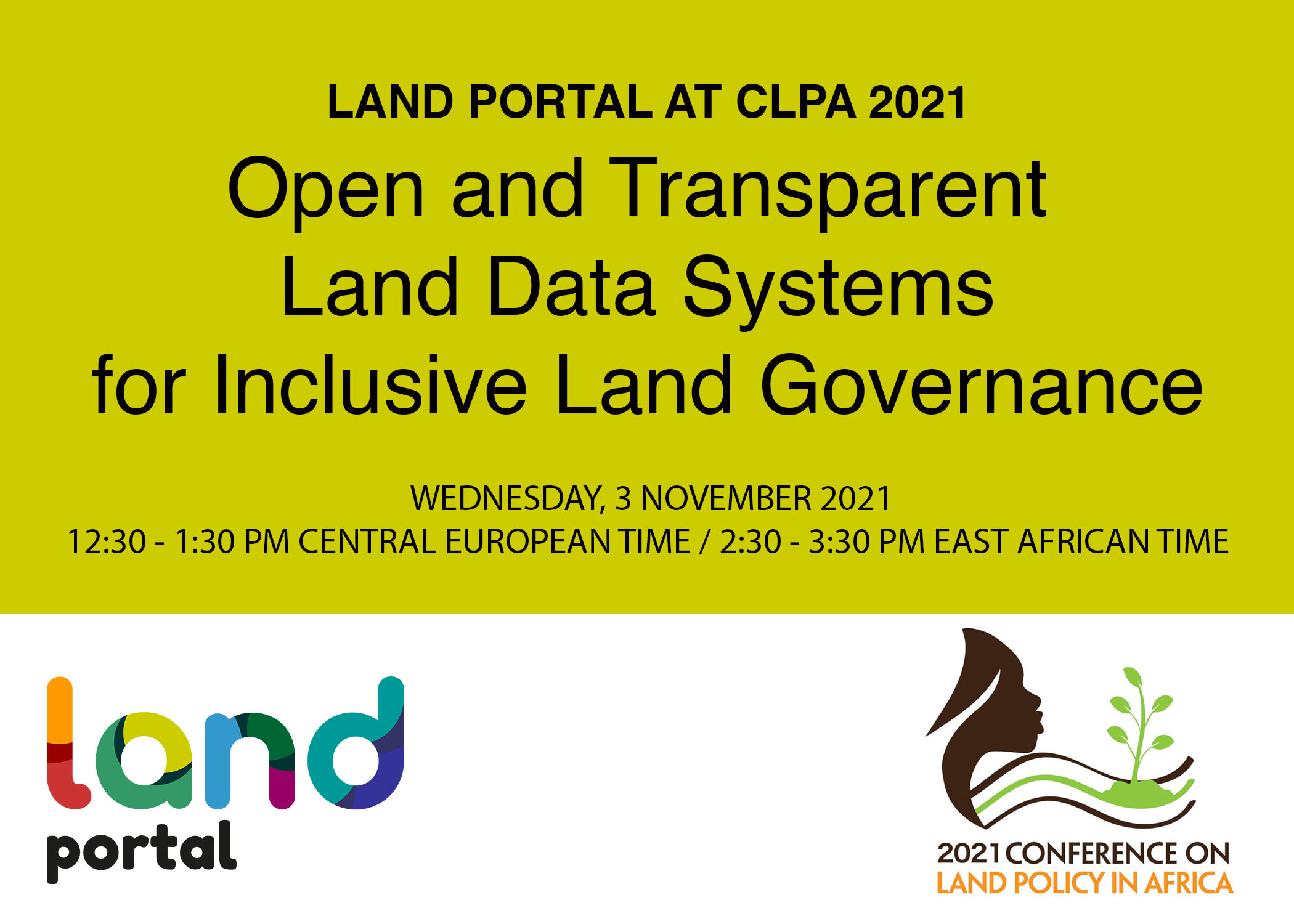Wednesday, 3rd November 2021
12:30 - 1:30 pm - CET / 2:30 - 3:30 pm - East African Time
This session takes place at the Conference on Land Policy in Africa (CLPA) on 1-4 November 2021. The focus of CLPA 2021 is “Land governance for safeguarding art, culture and heritage towards the Africa We Want”.
Registration
To participate in this side event, you should first register for the CLPA conference here.
Objective
This session will showcase evidence of how open land-data governance systems can be used as a tool to untangle and ameliorate the damage caused by a lack of open and transparent land governance systems. The session will also seek to discuss and demonstrate how open land-data governance systems can serve as a tool to fight poverty and ultimately serve as a tool for more inclusive land governance.
MODERATOR

Laura Meggiolaro
PANELISTS

Charl-Thom
Bayer

Natalia
Carfi

Nicolas
Grossman

Naome
Kabanda
- Charl-Thom H. Bayer, Land Information Management and Advocacy Consultant
- Natalia Carfi, Executive Director, Open Data Charter
- Nicolas Grossman, Research and Data Lead, Global Data Barometer
- Naome Kabanda, Department of Land Adminsitration, Uganda
Moderator: Laura Meggiolaro, Team Leader, Land Portal Foundation
Relevance
Good land governance is said to be efficient, effective and transparent, while ensuring participatory processes and outcomes that are equitable and secure and promotes inclusive land governance. However, data governance is key to assessing and monitoring progress and ensuring outcomes that benefit the landless majority.
Open and equitable access to land governance, land-related data and information can provide the support needed to monitor key indices, especially those related to progress on the Sustainable Development Goals (SDGs) such as women’s ownership of land or perceptions of tenure security, among others. However, land ownership data is consistently ranked lowest on both the Global Open Data Index and the Open Data Barometer and each year this data is highlighted as the least likely to be open. Progress made with regards to improving access to data and information for inclusive land governance may be undermined by the exploitation of such open data systems to monopolise resources in a manner that instead excludes the majority of the poor.
In this context, the Land Portal Foundation and the Open data Charter have joined efforts to create an Open Up Guide on Land Governance that outlines key land governance data types, how they should be collected, stored, and published for improving land governance and transparency.

